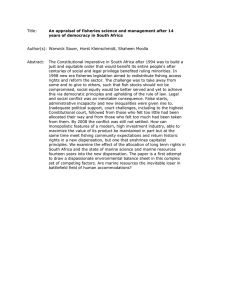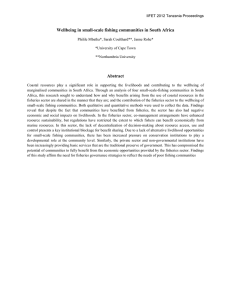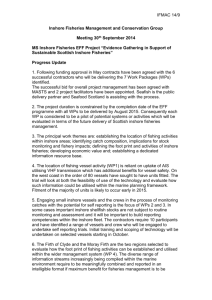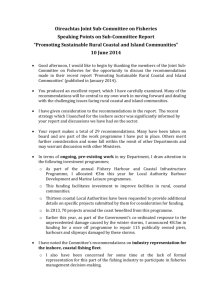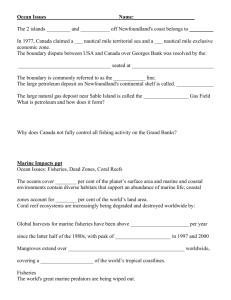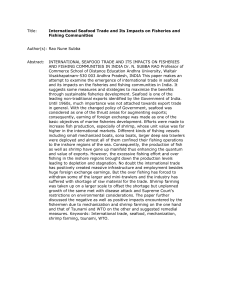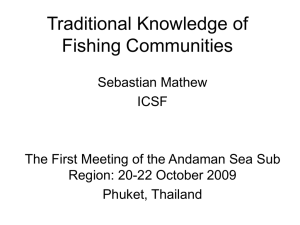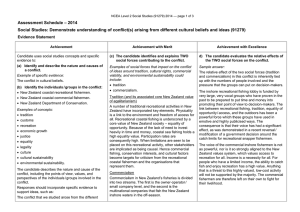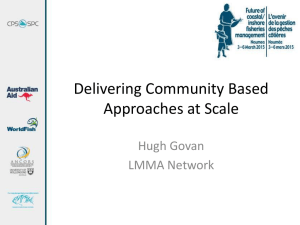Mapping the socio-economic and cultural importance of inshore fisheries Roelofs, M. Acott, T.
advertisement
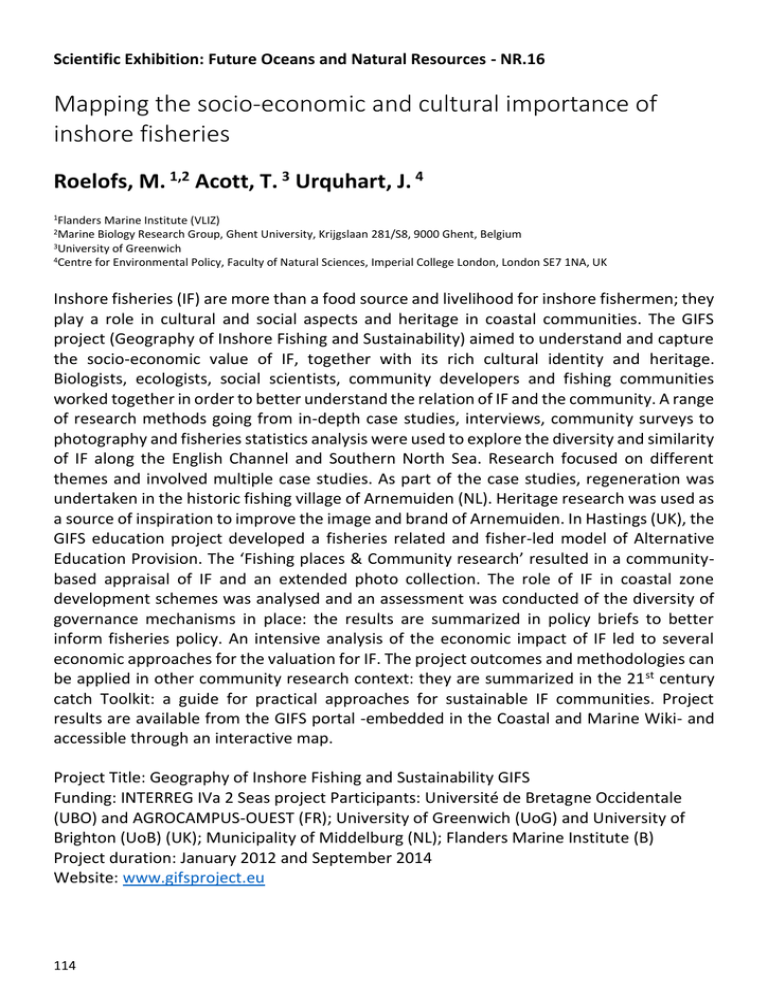
Scientific Exhibition: Future Oceans and Natural Resources - NR.16 Mapping the socio-economic and cultural importance of inshore fisheries Roelofs, M. 1,2 Acott, T. 3 Urquhart, J. 4 1Flanders Marine Institute (VLIZ) Biology Research Group, Ghent University, Krijgslaan 281/S8, 9000 Ghent, Belgium 3University of Greenwich 4Centre for Environmental Policy, Faculty of Natural Sciences, Imperial College London, London SE7 1NA, UK 2Marine Inshore fisheries (IF) are more than a food source and livelihood for inshore fishermen; they play a role in cultural and social aspects and heritage in coastal communities. The GIFS project (Geography of Inshore Fishing and Sustainability) aimed to understand and capture the socio-economic value of IF, together with its rich cultural identity and heritage. Biologists, ecologists, social scientists, community developers and fishing communities worked together in order to better understand the relation of IF and the community. A range of research methods going from in-depth case studies, interviews, community surveys to photography and fisheries statistics analysis were used to explore the diversity and similarity of IF along the English Channel and Southern North Sea. Research focused on different themes and involved multiple case studies. As part of the case studies, regeneration was undertaken in the historic fishing village of Arnemuiden (NL). Heritage research was used as a source of inspiration to improve the image and brand of Arnemuiden. In Hastings (UK), the GIFS education project developed a fisheries related and fisher-led model of Alternative Education Provision. The ‘Fishing places & Community research’ resulted in a communitybased appraisal of IF and an extended photo collection. The role of IF in coastal zone development schemes was analysed and an assessment was conducted of the diversity of governance mechanisms in place: the results are summarized in policy briefs to better inform fisheries policy. An intensive analysis of the economic impact of IF led to several economic approaches for the valuation for IF. The project outcomes and methodologies can be applied in other community research context: they are summarized in the 21 st century catch Toolkit: a guide for practical approaches for sustainable IF communities. Project results are available from the GIFS portal -embedded in the Coastal and Marine Wiki- and accessible through an interactive map. Project Title: Geography of Inshore Fishing and Sustainability GIFS Funding: INTERREG IVa 2 Seas project Participants: Université de Bretagne Occidentale (UBO) and AGROCAMPUS-OUEST (FR); University of Greenwich (UoG) and University of Brighton (UoB) (UK); Municipality of Middelburg (NL); Flanders Marine Institute (B) Project duration: January 2012 and September 2014 Website: www.gifsproject.eu 114
